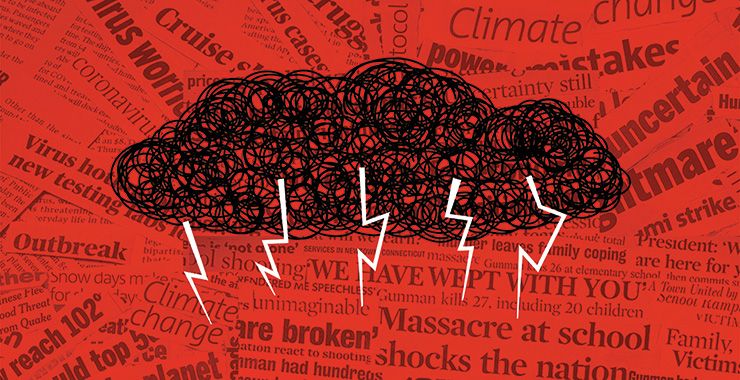The Digital landscape: A flood of information

In today's hyper-connected digital world, a ceaseless influx of news reaches audiences through numerous platforms - social media, television, newspapers, and more. Young individuals, in particular, are regularly exposed to this information torrent. However, recent studies have unveiled a worrisome trend: news-induced anxiety is causing young people to disengage from news consumption whatsoever.
The rising tide of News-Induced anxiety
According to the American Psychological Association (APA), by June 2020, a staggering 83% of Americans were reporting stress over the nation's future.
This trend was fueled by a convergence of distressing news events such as economic turmoil, racial injustice, and the global pandemic. The APA's Stress in America survey in March 2022 echoed this sentiment, revealing that 73% of Americans continued to feel overwhelmed by the numerous crises the world was facing.
Scientific Evidence: The Mental Health Impact of News Consumption
Further supporting this trend, studies conducted by the National Center for Biotechnology Information in Maryland, USA, showed the following:
Television exposure and total media exposure during adolescence are associated with an increased likelihood of depressive symptoms in young adulthood, particularly in young men.
The reviewed literature supports an association between increased consumption of COVID-19 related news and decreased mental health in young people.
The negative effects were more pronounced for news obtained via social media, with traditional media sources showing varied results. Misinformation appeared to further exacerbate the relationship.
An APA survey indicated that 72% of American adults feel stressed about the news, with 69% identifying the media as a significant source of stress. Research from the University of California, Irvine, corroborated these findings, noting that young people consuming high volumes of news are more likely to develop anxiety and depression.
It seems that news outlets want to tell us what is the worst thing that happened today - Elon Musk
The Media's Role: Balancing Information and Impact
The unending onslaught of negative news can be overwhelming, particularly for young individuals attempting to navigate the complexities of the world. It's paramount for content providers and media outlets to acknowledge their role in contributing to this stress and explore potential solutions.

One promising solution could be the establishment of a "good news" section within media outlets, presenting uplifting news stories that offer young people a more balanced view of the world. Another approach may involve providing comprehensive context around news stories, enabling young people to gain a better understanding of the issues at hand.


